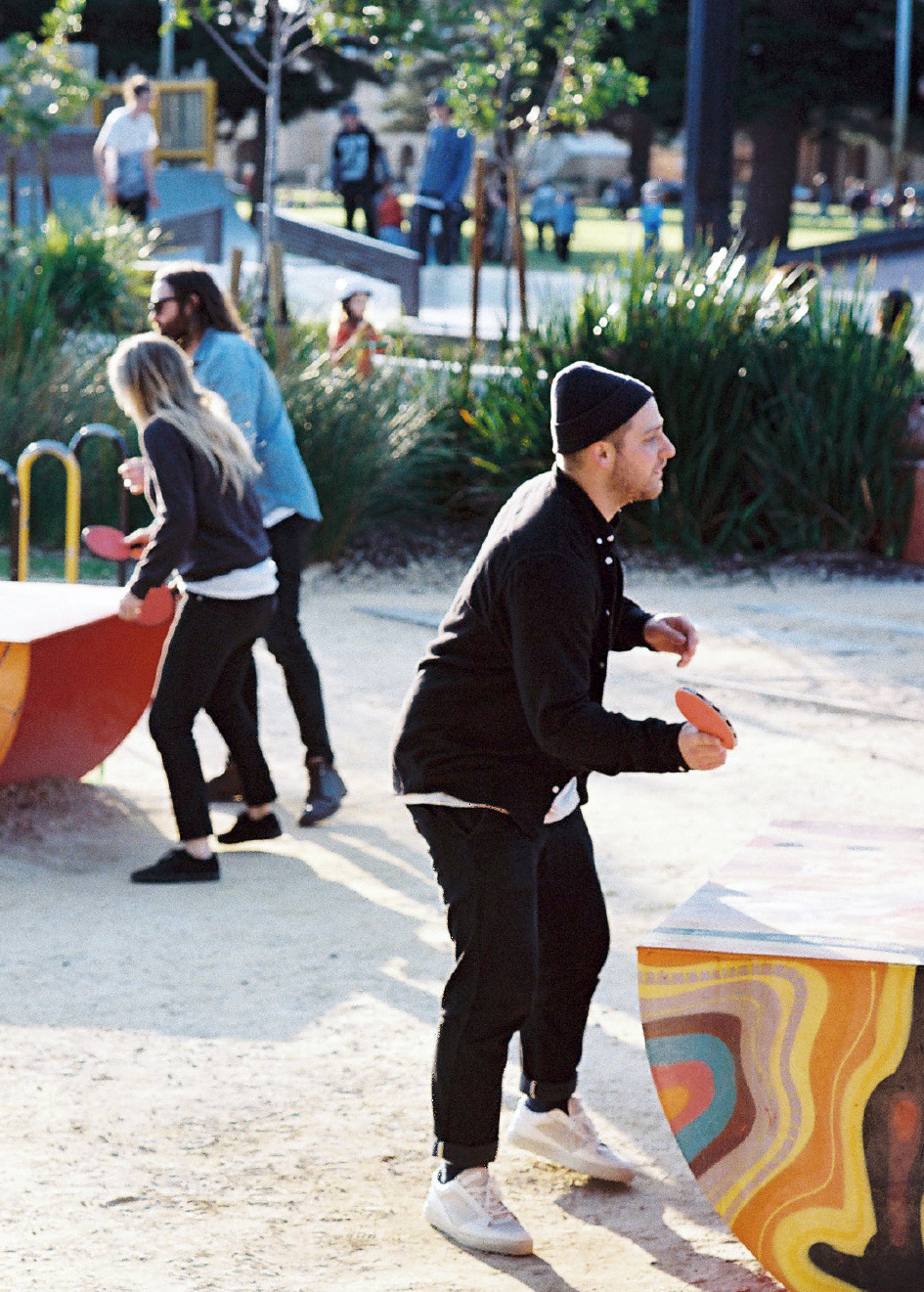Sports Participation Over a Lifetime

In this month’s dispatch we're talking about adults and exercise (or play). Specifically - why we don't participate in sports and why we should.
IMAGE CREDIT ABOVE
Location: Esplanade Youth Plaza, WA
Image Credit: James Whineray
By age 20 sport participation drops to roughly 14% after a steady decline from a more healthy 50% at ages 10 - 14. And by the time we're post 25 years old, participation rates are no more than 10%. What's up with that?
Play vs. Exercise
We talk a lot about play around here and the majority of that is in the context of children and teens but adults also benefit from play (and are at the bottom of the list when it comes to physical activity levels).
Everyone knows regular movement is good for us but we'll lay out some of the benefits here anyway, for persuasions sake. The more we engage in moderate to vigorous physical activity per week the lower our risk of many ailments and diseases. Including, cardiovascular disease, type-2 diabetes, cancer, dementia, anxiety, depression, sleep problems and obesity - to name a few. That's a lot of good for not that much input (150 minutes minimum per week is recommended - that's 20 minutes a day).
The big question remains; if the benefits are this vast and simple to achieve, why are so few adults reaching the minimum goal?
Psychologist and play expert Dr. Peter Gray has a theory. It's how we perceive exercise or "working out" - we see it as just that, "work". He thinks instead, we should call it "playing out" and although this doesn't exactly roll off the tongue, we like the idea behind it.
Basically, he's calling for physical activity to be seen by the masses (particularly older folk) not as something we should be doing but something we really really enjoy doing i.e. turning exercise into play, not only for the physical benefits but for the psychological too. This is backed up by a study showing people who played badminton or tennis as their primary exercise lived an average of five years longer than those who jogged and 7.5 years longer than those who worked out at a health club. Dr. Gray hypothesised that tennis and badminton players lived longer not because they were getting better exercise from these activities but because they were "playing". Their regular exercise was something they loved and so, most likely did more of and later into life than those who went to the gym.
Not only that, but when we're playing sport rather than a solo activity like running or going to the gym we're also getting the added social and mental health benefit that comes with connecting with others and being part of a community. Having at least one other person to be active with is a great motivator and increases the likelihood of consistency.
So it's clear sports are great for us on more than just a physical level but why don't we play them more as adults?
Two main reasons are identified by Dr. Rochelle Eime, a Professor of Sport Participation at Federation University. First, the competitive nature of sports puts some adults off and second, having a differing age and skillset to other adults.
Basically, he's calling for physical activity to be seen by the masses (particularly older folk) not as something we should be doing but something we really really enjoy doing i.e. turning exercise into play, not only for the physical benefits but for the psychological too. This is backed up by a study showing people who played badminton or tennis as their primary exercise lived an average of five years longer than those who jogged and 7.5 years longer than those who worked out at a health club. Dr. Gray hypothesised that tennis and badminton players lived longer not because they were getting better exercise from these activities but because they were "playing". Their regular exercise was something they loved and so, most likely did more of and later into life than those who went to the gym.
Not only that, but when we're playing sport rather than a solo activity like running or going to the gym we're also getting the added social and mental health benefit that comes with connecting with others and being part of a community. Having at least one other person to be active with is a great motivator and increases the likelihood of consistency.
| Other Barriers for Adults |
So it's clear sports are great for us on more than just a physical level but why don't we play them more as adults?
Two main reasons are identified by Dr. Rochelle Eime, a Professor of Sport Participation at Federation University. First, the competitive nature of sports puts some adults off and second, having a differing age and skillset to other adults.

This is where something like table tennis is super valuable for communities. It's a "pick up and play" sport, meaning it's easy to learn and is universally accessible. Differing ages and skillsets don't really matter with table tennis, and competition can be intense or non existent depending on how competitive you're feeling on the day. This is why Public Outdoor Ping Pong (Us) exists - you don't need to join a club or commit to a team, all you need to do is bring a friend, a bat and a few balls down to the closest public POPP table to you and you've got your 20 minutes.
Have we persuaded you yet?
